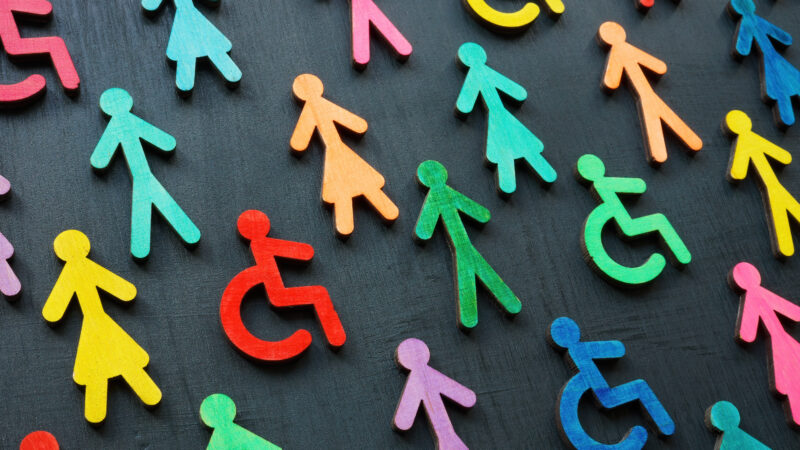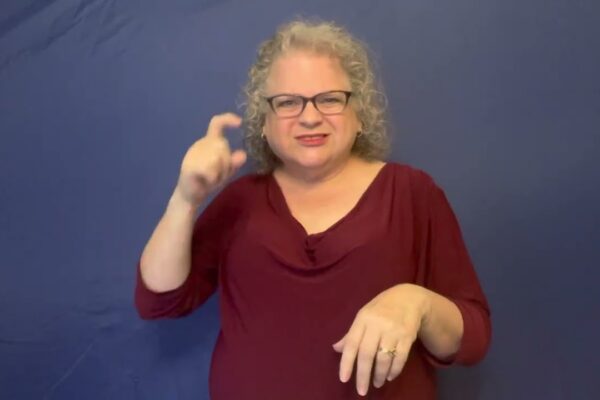Disability Rights
Striving for an America free of discrimination against people with disabilities, where they are valued, integrated members of society with full access to education, homes, health care, jobs, voting, and beyond.

What you need to know
70%
of public school students who are physically restrained or secluded have disabilities.
60%
of people in local jails have some form of mental disability.
$15,000 or less
Forty-eight percent of people with disabilities have a personal income of $15,000 or less.
Striving for an America free of discrimination against people with disabilities, where they are valued, integrated members of society with full access to education, homes, health care, jobs, voting, and beyond.
COBB ET AL V. GEORGIA DEPARTMENT OF COMMUNITY SUPERVISION ET AL
A five-year effort to get equal access for deaf and hard-of-hearing people on parole and probation in Georgia has ended in victory. The American Civil Liberties Union and our legal partners reached a groundbreaking settlement that requires the Georgia agency responsible for supervising people on probation and parole – the Georgia Department of Community Supervision or “GDCS” – to dismantle the discriminatory hurdles that make it harder for deaf and hard-of-hearing people to avoid prison and live safely in their communities.
GDCS has agreed to provide Deaf interpreters for people who need them. Deaf interpreters are sign language interpreters who are also deaf. A Deaf interpreter will work with a hearing ASL interpreter to provide effective communication, especially for deaf adults who have experienced language deprivation — a neurodevelopmental disorder with negative and long-lasting effects on the deaf adult’s language, cognitive, and socioemotional development. GDCS will also now provide better accommodations for deaf or hard-of-hearing clients who cannot read and write English. Many people on supervision in Georgia are required to complete programs or classes as a condition of their supervision, but, in the past, the sponsors of many of these programs have refused to provide ASL interpreters and other necessary accommodations to our clients. GDCS will now require that the providers of any classes or programs required for people on supervision, comply with federal disability laws by providing necessary accommodations, such as interpreters, for effective communication.
HARRIS V. GEORGIA DEPARTMENT OF CORRECTIONS
In this federal class action, the ACLU is seeking an injunction directing the Georgia Department of Corrections to immediately provide qualified American Sign Language interpreters, auxiliary aids and services, and reasonable modifications to deaf and hard of hearing individuals in prison. This lawsuit highlights how prison, probation, and parole systems fail deaf prisoners – leading deaf people to go to prison more often, stay longer, and return more quickly.
COEN V. GDOC
The American Civil Liberties Union and the ACLU of Georgia filed a motion in federal court to pursue a class action lawsuit on behalf of deaf and hard of hearing people imprisoned in and released from the Georgia Department of Corrections. The complaint highlights how prison, probation, and parole systems fail deaf prisoners – leading deaf people to go to prison more often, stay longer, and return more quickly.
The Latest

Settlement Ensures Communication Access for Deaf People on Parole and Probation in Georgia
Cases, Campaigns & Legislation
Cobb v. Georgia Department of Community Supervision
Stay Informed
Sign up to be the first to hear about how to take action.
By completing this form, I agree to receive occasional emails per the terms of the ACLU’s privacy statement.
By completing this form, I agree to receive occasional emails per the terms of the ACLU’s privacy statement.


